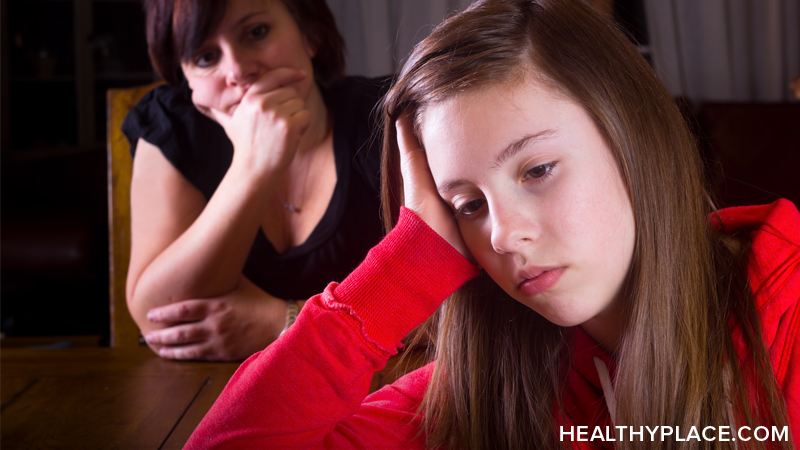Parenting a Child with Reactive Attachment Disorder

“Parenting a RAD child, even one who is [now] attached and relatively adjusted and productive, is a slippery slope because you can never assume your child feels grounded and safe,” states Tina Traster in her 2014 memoir, Rescuing Julia Twice: A Mother’s Tale of Russian Adoption and Overcoming Reactive Attachment Disorder.
Reactive attachment disorder is caused by the trauma of severe neglect in infancy or very early childhood. Because of the neglect, the infant or young child learns that adults can’t be counted on for security, safety, and other needs. Because of the neglect, he/she doesn’t form an attachment to anyone; no one is there to bond with. Without attachment, a child can’t trust anyone or anything, so he/she withdraws from people. The lack of trust, safety, and bonding is long-lasting; therefore, parenting a child with reactive attachment disorder can be challenging.
Challenges of Parenting a Child with Reactive Attachment Disorder
In reactive attachment disorder, infants, children, and teens can’t bond with others. The child with RAD is withdrawn from the world because he/she can’t trust people, even people who are currently trying to love them.
Love is, in fact, one of the biggest challenges and frustrations in parenting a child with reactive attachment disorder. Frequently, the parent wants to love the child with RAD, to love away the pain. The more the parent tries to shower the child with affection, though, the further the child withdraws (Reactive Attachment Disorder Symptoms). It is frustrating and can be depressing- and anxiety-provoking for parents to have their love continually rejected.
In parenting a child with reactive attachment disorder, it can at times be easy to take the withdrawal and what seems like rejection personally, especially when you’re working hard in many areas to help the child feel connected: at home, at school, with friends, in other settings.
The frustrations, anxiety, and depressive episodes that can happen when parenting a child with reactive attachment disorder are normal. It’s important to keep in mind, though, that the difficulties and challenges aren’t at all personal. They’re protective on the part of the child because he/she never developed a working model for
- Attachment
- Trust
- Security
- Reciprocal love and affection.
The challenges of parenting a child with reactive attachment disorder are numerous, but they don’t have to stop everyone in their tracks. There are helpful actions you can take for successful RAD parenting.
Things That Help In Reactive Attachment Disorder Parenting
First and foremost, remember that safety and trust are instrumental in parenting a child with reactive attachment disorder. Parenting a child with RAD involves showing love by providing safety and a sense of trust.
Other helpful reactive attachment disorder parenting tips include such things as:
- Remembering that all behavior has a purpose; look past the behavior itself to try to determine the underlying cause
- Establish a consistent, reliable routine to build a sense of safety and trust
- Gently but firmly enforce limits, also for safety and trust
- Play games, engage in activities to build social and relationship skills
- Provide choices whenever possible to foster a sense of self-efficacy
- Use encouragement rather than criticism
- Keep interactions and discipline positive
- Consider therapy: for the child, for the family, and for the parents as individuals
RAD parenting, like almost everything in life, is a process. Reactive attachment disorder treatment is absolutely possible, and RAD parenting can be successful and rewarding. Taking someone in who learned as an infant or very young child that the world is unsafe, uncaring, and untrustworthy and then helping him/her learn otherwise isn’t easy. Yet parenting a child with reactive attachment disorder can help him/her lead a successful life full of not just trust, but love.
APA Reference
Peterson, T.
(2021, December 30). Parenting a Child with Reactive Attachment Disorder, HealthyPlace. Retrieved
on 2026, February 27 from https://www.healthyplace.com/ptsd-and-stress-disorders/reactive-attachment-disorder/parenting-a-child-with-reactive-attachment-disorder



